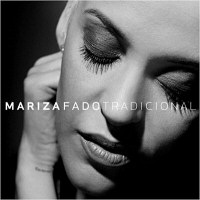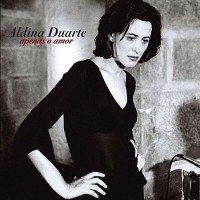Traditional Fados
Traditional Fados
Fado has an extensive repertoire of traditional songs - usually refered to as «Fados Tradicionais». They probably number anywhere between 140 and at least 250 depending on how the list is defined.[1] In 2014, the guitarist António Parreira (Professor of Guitar at Lisbon's Fado Museum) transcribed 180 of them in «O Livro dos Fados - 180 Fados Tradicionais em Partituras» (The Book of Fados - Sheet Music for 180 Traditional Fados).
Popular Fados
Originally an oral tradition, most early Fados seem not to have survived. There are four old Fados recognised as «popular» (as in of no known composer) and three of these are now considered fundamental: Fado Menor,[2] Fado Corrido[3] and Fado Mouraria (the fourth, Fado das Horas, may be understood as a variation of Fado Corrido). They are all based on the simple tonic / dominant harmonic structure typical of «Fado Castiço»[1] and, perhaps surprisingly, involve major chords except for the tonic of Fado Menor (hence its name) which also tends to be slower.
Early Fados
Among the earliest attributed Fados are many written by historically significant Fadistas from early in the last century. These include the singers Alfredo Marceneiro[4] (1888[5]-1982), Júlio Proença (1901-1970), Joaquim Campos (1911-1981) and Pedro Rodrigues; the guitarists Carlos da Maia (1878-1921), Armandinho[6] (1891-1946), Casimiro Ramos (1902-1973) and Jaime Santos (1909-1982); the violistas[7] Armando Machado (1899-1974) and Miguel Ramos - Casimiro's brother - (1901-1973); and the poet and composer Frederico de Brito (1894-1977).
Traditional Fados Today
These old songs are still being performed and recorded today. Sometimes they are revisited more or less faithfully or - where permitted by the copyright holder - the music may be a continuing source of inspiration as the setting for new lyrics.
Mariza «Fado Tradicional»
 Mariza's 2010 album «Fado Tradicional» features Fados with their earliest registered lyrics including «Ai, Esta Pena De Mim» (Fado Zé António Quadras) with lyrics by Amália.[8] In addition, there are «Boa Noite Solidão» (Fado Carlos da Maia) with lyrics by Jorge Fernando (as a teenager in the 70s), «Mais Uma Lua» (Fado Varela) and «Desalma» (Fado Alberto) with lyrics by Diogo Clemente (the album's producer and violista).[9]
Mariza's 2010 album «Fado Tradicional» features Fados with their earliest registered lyrics including «Ai, Esta Pena De Mim» (Fado Zé António Quadras) with lyrics by Amália.[8] In addition, there are «Boa Noite Solidão» (Fado Carlos da Maia) with lyrics by Jorge Fernando (as a teenager in the 70s), «Mais Uma Lua» (Fado Varela) and «Desalma» (Fado Alberto) with lyrics by Diogo Clemente (the album's producer and violista).[9]
Aldina Duarte «Apenas o Amor»
 Aldina Duarte's «Apenas o Amor» album (2004) is entirely devoted to traditional Fados, mostly with her own lyrics. It includes the music to two of the Fados mentioned on Mariza's album (here with Aldina's own lyrics): «Quase Lembrança» (Fado Zé António Quadras) and «Muro Vazio» (Fado Carlos da Maia). A version of Fado Menor («M.F.») became part of the soundtrack to the film «The Portuguese Nun» and epitomises the enduring allure of this fundamental Fado.
Aldina Duarte's «Apenas o Amor» album (2004) is entirely devoted to traditional Fados, mostly with her own lyrics. It includes the music to two of the Fados mentioned on Mariza's album (here with Aldina's own lyrics): «Quase Lembrança» (Fado Zé António Quadras) and «Muro Vazio» (Fado Carlos da Maia). A version of Fado Menor («M.F.») became part of the soundtrack to the film «The Portuguese Nun» and epitomises the enduring allure of this fundamental Fado.
Notes
1 There is an opinion that the only authentic Fado is the earlier (but perhaps not earliest) form known as «Fado Castiço». Kriss Kristofferson once said: "If it sounds Country, man, that's what it is - it's a Country song." And that's another opinion.
2 Fado Menor is generally considered the most fundamental of all.
3 Fado Corrido was the term originally used to describe the specific style of guitar accompaniment.
4 «Marceneiro» refers to his trade as a joiner. His song credits are sometimes shown as Alfredo Rodrigo Duarte, his real name.
5 Marceneiro's National Identity Card showed 1891 as his year of birth.
6 Armandinho's song credits may also appear in his full name - Armando Augusto Freire.
7 «Viola» is Portuguese for a classical guitar.
8 A version of the album with bonus tracks includes a second Amália lyric - «Lavava No Rio Lavava».
9 One other song - «Promete, Jura» (also known as «Estás a Pensar em Mim») by daughter & father Maria João & Sérgio Dámaso - is included twice and although a traditional Fado, it fits well and may have become the best known track on the album.
text copyright © 2015-2022 fadoconcerts.com